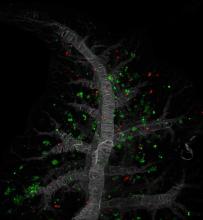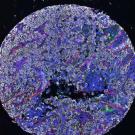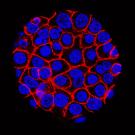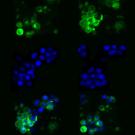News
Hackathon Prepares Young Researchers for the Collaborative Science of the Future
Bioscience discovery is not a solo pursuit. Confronted with mountains of genomic data, it takes a team of researchers with complementary expertise to glean gemlike insights. On a sunny Friday, teams of aspiring young scientists gathered in the Clinical Sciences building at Parnassus Heights, looking
UCSF Develops First of Its Kind Robotic Surgery Trial in Partnership with FDA
UCSF Health is recruiting patients for the only FDA-approved study of the use of single port robotic technology for colorectal surgery in the United States. UC San Francisco clinical investigators Ankit Sarin, MD, FACS, and Hueylan Chern, MD, initiated the study which will evaluate whether single
Drug Turns Cancer Gene Into “Eat Me” Flag for Immune System
Tumor cells are notoriously good at evading the human immune system; they put up physical walls, wear disguises and handcuff the immune system with molecular tricks. Now, UC San Francisco researchers have developed a drug that overcomes some of these barriers, marking cancer cells for destruction by
Dutch Queen Visits UCSF on Tech Trade Mission
UC San Francisco hosted Queen Máxima of the Netherlands on Tuesday, as part of a Dutch trade mission to California. Two Dutch cancer experts at UCSF, Jeroen Roose, PhD, and Laura van ‘t Veer, PhD, discussed their work and how it has been supported by the entrepreneurial culture at UCSF and the Bay
Research Reveals Mechanisms at Work in Progression of Pancreatic Cysts to Pancreatic Cancer
Pancreatic cysts have gained substantial attention in recent years because they represent one of the only precursors of pancreatic cancer identifiable through radiologic imaging. Although most of these cysts, also known as pancreatic intraductal papillary mucinous neoplasms (IPMNs), will remain
Study Reveals Pregnant Women Are Exposed to Cancer-Causing Chemicals in Dishware, Hair Coloring, Plastics, and Pesticides
Pregnant women in the U.S. are being exposed to chemicals like melamine, cyanuric acid, and aromatic amines that can increase the risk of cancer and harm child development, according to a study from researchers at UC San Francisco and Johns Hopkins Bloomberg School of Public Health. Melamine and
A Cellular Engineering Breakthrough: High-Yield CRISPR Without Viral Vectors
A new variation of the CRISPR-Cas9 gene editing system makes it easier to re-engineer massive quantities of cells for therapeutic applications. The approach, developed at Gladstone Institutes and UC San Francisco (UCSF), lets scientists introduce especially long DNA sequences to precise locations in









